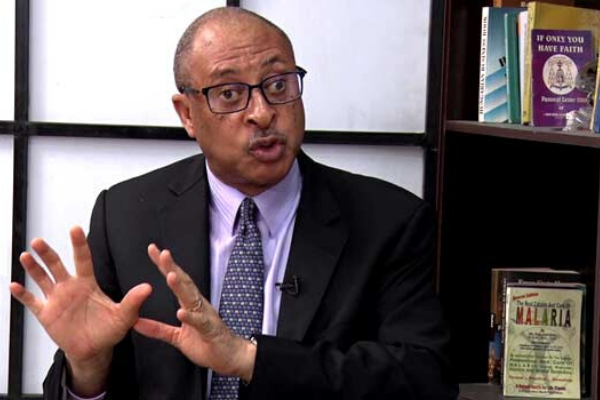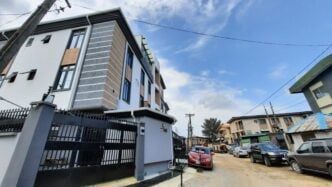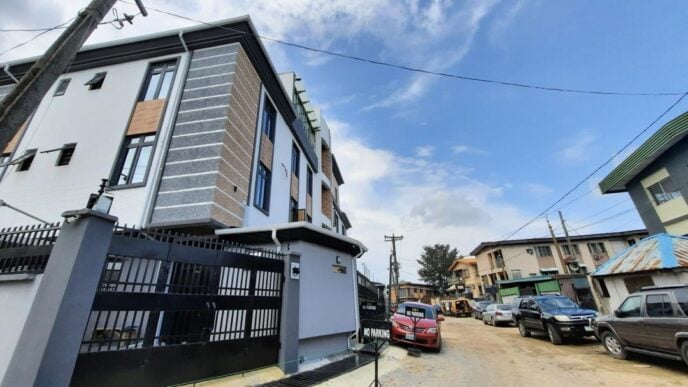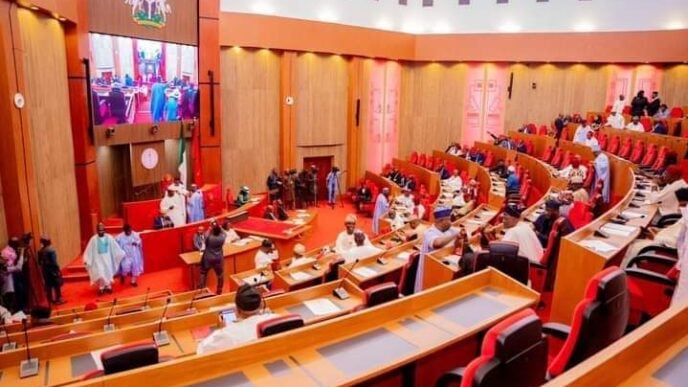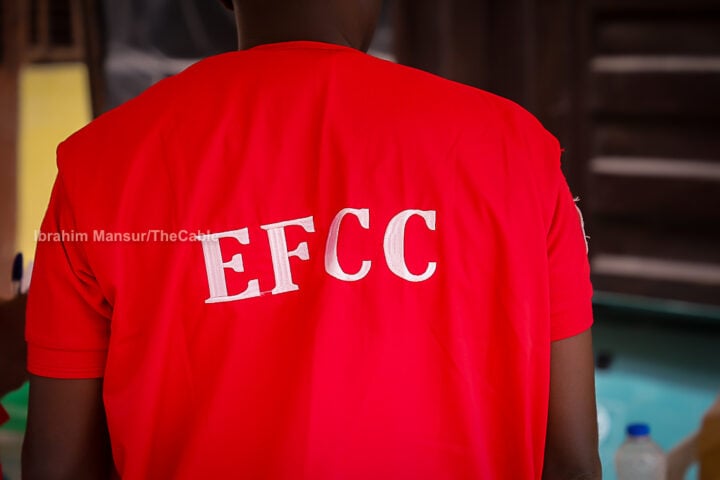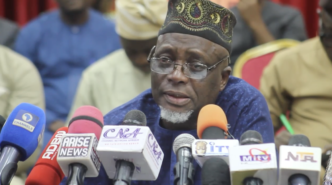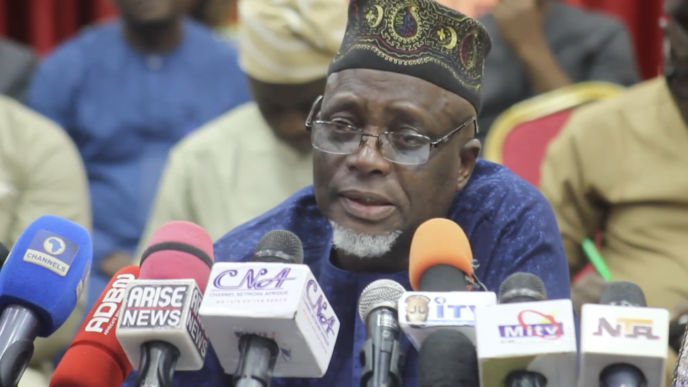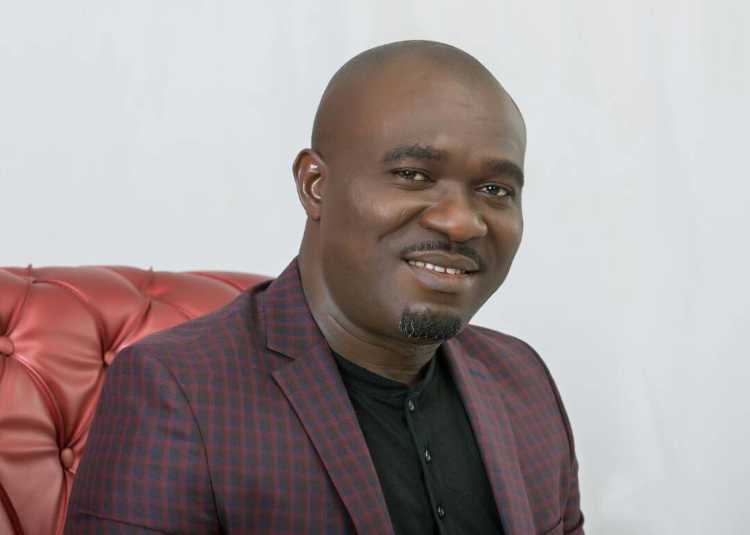Pat Utomi
The Department of State Services (DSS) has initiated a legal suit against Pat Utomi, a professor of political economy, over his launch of a ‘shadow government’.
A shadow government is a group of opposition members that mimics the structure and cabinet of the actual government. It is common in a parliamentary system of government.
On May 5, Utomi launched the initiative virtually and dubbed it ‘Big tent coalition shadow government’.
The professor had said the shadow government aimed to serve as a credible opposition to the President Bola Tinubu administration.
Advertisement
According to Utomi, the shadow government is a “national response emergency” to Tinubu’s administration.
The shadow cabinet includes a diverse group of professionals and public figures from the opposition, including Dele Farotimi, the human rights advocate, who will lead the ombudsman and good governance portfolio.
The federal government and the All Progressives Congress had criticised the move.
Advertisement
THE SUIT
In a suit marked FHC/ABJ/CS/937/2025 and filed at the federal high court, Abuja, the secret police are seeking a declaration of the shadow government initiative as illegal.
According to NAN, the DSS filed the suit through a team of lawyers led by Akinlolu Kehinde, a senior advocate of Nigeria (SAN).
Utomi is the sole defendant in the suit.
Advertisement
The DSS argued that the creation of the shadow government is a grave attack on the 1999 constitution (as amended) and a threat to democratic government in the country.
The DSS said the shadow government initiative may incite political unrest and embolden other unlawful actors to replicate similar parallel arrangements in the country.
The secret police averred that the move poses a great threat to the national security of the country and asked the court to declare the shadow cabinet as “unconstitutional and amounts to an attempt to create a parallel authority not recognised by the Constitution of the Federal Republic of Nigeria, 1999 (as amended)”.
The secret police sought the court declaration that “under sections 1(1), 1(2) and 14(2)(a) of the Constitution, the establishment or operation of any governmental authority or structure outside the provisions of the Constitution of the Federal Republic of Nigeria, 1999 (as amended) is unconstitutional, null, and void”.
Advertisement
The DSS prayed the court to issue an order of perpetual injunction, restraining Utomi, his agents and associates “from further taking any steps towards the establishment or operation of a ‘shadow government,’ ‘shadow cabinet’ or any similar entity not recognized by the Constitution of the Federal Republic of Nigeria, 1999 (as amended)”.
“The ‘shadow government’ or ‘shadow cabinet’ is an unregistered and unrecognised body claiming to operate as an alternative government. contrary to the provision of the Constitution of the Federal Republic of Nigeria, 1999 (as amended),” the suit reads.
Advertisement
“The defendant (Utomi), through public statements, social media, and other platforms, has announced the formation of this body with the intent to challenge the legitimacy of the democratically elected government of Nigeria.
“While inaugurating the ‘shadow cabinet’, the defendant stated that it is made up of the Ombudsman and Good Governance portfolio to be manned by Dele Farotimi; the Policy Delivery Unit Team consisting of Oghene Momoh, Cheta Nwanze, Daniel Ikuonobe, Halima Ahmed, David Okonkwo and Obi Ajuga; and the council of economic advisers.
Advertisement
“Based on the intelligence gathered by the plaintiff, the activities and statements made by the defendant and his associates are capable of misleading segments of the Nigerian public, weakening confidence in the legitimacy of the elected government, and fuelling public disaffection.
“The defendant’s actions amount to an attempt to usurp or mimic executive authority, contrary to Sections 1(1), 1(2), and 14(2)(a) of the 1999 Constitution (As Amended), which exclusively vests governance in institutions duly created under the constitution and through democratic elections.
Advertisement
“The Federal Government of Nigeria has made several efforts to engage the defendant to dissuade him from this unconstitutional path, including statements made by the Minister of Information, but the defendant has remained defiant.”
